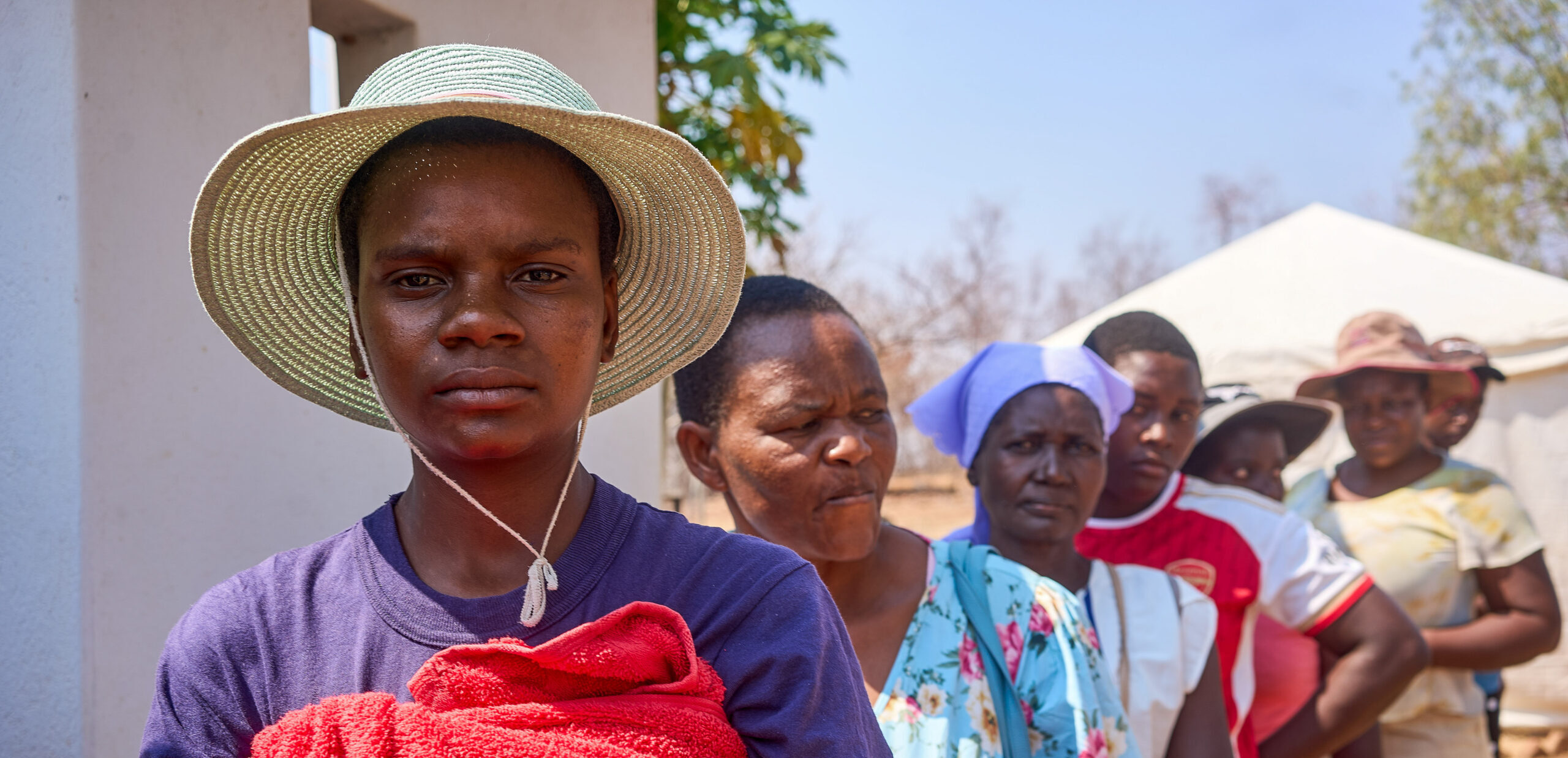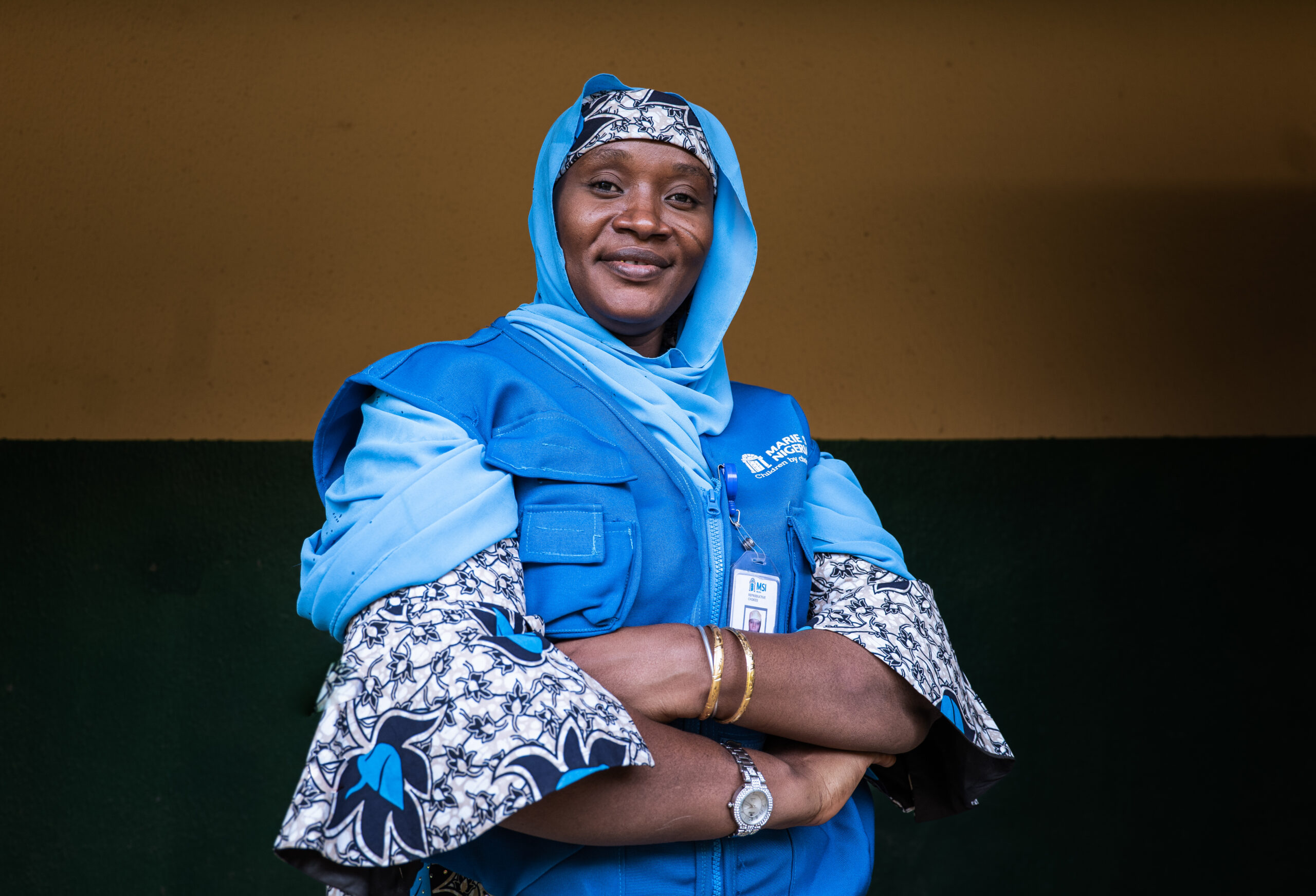
‘Frank, forthright and focused’ characterised the first of our new ‘In conversation with’ webinar series: Transforming last mile access through health system partnerships.
Passionate panellists from across the sector drew on their wide-ranging expertise to share rich learnings of how, in partnership, we can reach underserved communities, and why now is a critical moment for choice.
First up was Dr. Samukeliso Dube, Executive Director, FP2030 who set the scene and the challenge in a rousing opener.
Dr Dube put the myriad issues facing the sector into sharp focus with an example from a recent trip to Panama, describing clinics with no roads or trucks to supply them, where provider stigma, lack of training and language barriers leave women too afraid to visit.
But Dr Dube rallied the audience to see this not just as a challenge, but as an opportunity. Warning that halfway through the SDGs, time is not on our side, she set out clear stepping-stones to making reproductive healthcare accessible to all, including:
- Working in partnerships, with governments leading the way
- Doubling down on advancements and innovations, like telemedicine
- Working with governments to dismantle social norms and address cultural barriers
Dr Dube was clear that every woman and every adolescent from Bulawayo to Baltimore deserves rights-based care and in partnership, we CAN reach those who have been left behind.
Anna Mackay, MSI’s Senior Director, Global Programmes and Philanthropy was next to speak, describing how MSI is seeing unprecedented demand for services in rural, underserved communities, alongside exciting and ambitious FP2030 commitments from governments.
Taking its learnings from last-mile delivery – from expanding method choice to increasing adolescent access – MSI is working in partnership with governments in 23 countries to galvanise community demand, empower communities and providers, and bolster health systems. Over time, MSI is seeing the number of women and girls seeking services at these facilities increase by over a third, with 80% coming from underserved communities and the proportion of adolescents increasing by up to two-thirds. These increases are being maintained even as MSI’s inputs reduce and are happening at sufficient scale to see national impact: MSI’s partnership with the Government of Nigeria is enabling government providers to meet around 25% of national family planning demand.
Dr Carole Sekimpi, Senior Country Director at MSI shared MSI’s health systems strengthening vision, including how to create a step-change in demand for contraception, by working at the community, facility, and health system level to build capacity, confidence and strengthen quality.
In MSI’s experience, when communities are engaged and providers are confident to provide client-centred counselling and services, there is a surge in family planning take-up among underserved groups and a broadening in method choice, with two thirds of women and girls seeking contraception at MSI-supported government facilities opting for a LARC when presented with a broader range of methods.
MSI also supports facilities to provide adolescent friendly services. Working alongside government community mobilisers, MSI’s teams garner community support for adolescent access through tailored messaging developed with young people and community leaders. Overall, MSI has supported governments to serve over 2.2 million adolescents in the past five years, and early data shows that shifts in provider attitude and adolescent take-up are maintained even as MSI inputs reduce.
At the health system level, MSI works with district and national governments to strengthen management, training and supply systems to shift policies and increase domestic financing. MSI also works with partners to remove restrictions by sharing data and local implementer perspectives, as well as building and nurturing relationships across all levels of government to support policy change from pilot to roll-out. In Ghana, working with the government and partners MSI demonstrated the benefits of including family planning in the National Health Insurance benefits package, meaning women and girls can now access a choice of contraceptives free of charge from public and private providers, and in DRC, MSI advocacy helped to expand the training curriculum for nurses and midwives to support the provision of quality abortion services.
Dr Sekimpi ended by warning that sustainable financing for sexual and reproductive health remains a big question, while broader opposition to SRHR is threatening many gains. Key to meeting the needs of the next generation is going to be working with and learning from others so that together we can support government to deliver FP2030 goals and meet the needs of the next generation.
Dr Claudette Diogo, Logistics and Supply Manager from the Family Planning Ghana Health Service described how working in partnership on a pilot with MSI helped to prove the return on investment of including family planning in the National Health Insurance package, meaning that everyone with national health insurance can now access family planning free of charge.
Key learnings from Dr Diogo are that everyone has their part to play, open conversation is key and to remember that the woman or the adolescent is the ultimate beneficiary. If the private sector, social marketing organisations, the government and public sector come together, we can improve access to all the contraceptive methods that everyone needs.
Jemal Kassaw, country representative for EngenderHealth in Ethiopia spoke about how the partnership with MSI to support the Ethiopian Ministry of Health to establish a catchment-based clinical mentorship and supportive supervision model has improved family planning and comprehensive abortion care at public health facilities.
Through this approach, they reached almost 80% of health facilities across the country, supported by digital technology including SMS, social media and virtual video conferencing.
Key lessons include that catchment-based clinical mentorship and supportive supervision has:
- Strengthened capacity in the public health system
- Improved the skills of healthcare providers at the last mile, including counselling and clinical skills.
- Virtual mentoring has also proven to be effective and can be scaled up in the future.
Finally, Dr Abdulrahman Zagga, State Lead at Breakthrough Action-Nigeria (BA-N), a flagship social and behaviour change programme, presented on driving sustainable demand in Nigeria.
Working predominantly in the community in partnership with MSI and the government, BA-N’s primary goal is to change behaviours to increase uptake of contraceptive methods.
Dr Zagga highlighted key takeaways, including:
- Joint activity planning, with the government driving all activities and taking the driving seat in implementation
- Carrying out regular review meetings to look at successes and areas of improvement.
He added that the secret to success is community ownership, which can be achieved through a multi-channel approach, including:
- Community social behaviour change through community volunteers carrying out daily health education and household visits
- Community capacity strengthening to ensure that ownership continues beyond the project
- Mass media
Drawing the session to a close, the panel reflected that key to achieving our goals was keeping the clients and those who lack access at the heart of everything we do and doubling down to transform access with government leadership. Women and girls’ ability to access sexual and reproductive health and rights is critical to the realisation of their human rights and leads to huge health, economic, social, and environmental gains, lifting entire communities out of poverty.
So, as Dr Dube put it so succinctly: “Onwards!”
Watch the webinar back in full below and download the slides here.
This is the first in a series of webinars that will include sessions on private sector engagement and method choice. For more information, please contact [email protected]








